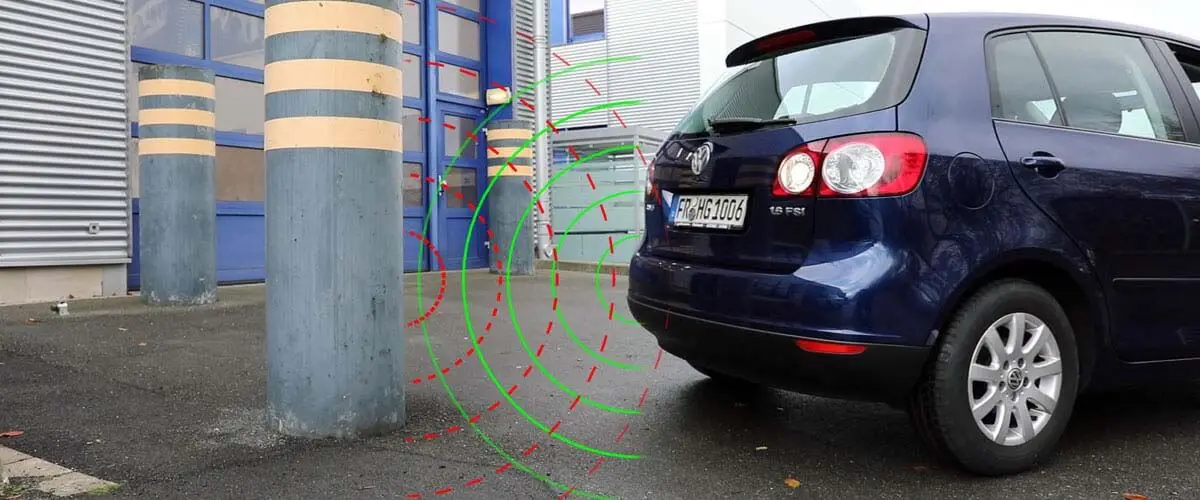How does a car’s parking system with park assist and park distance control system work?


Car parking systems with park assist and park distance control have become increasingly popular in modern vehicles. These advanced driver assistance systems utilize automotive technology to make parking easier and safer for drivers. In this article, we will explore how these systems work and the benefits they provide in terms of car safety features.
What is a car parking system with park assist?
A car parking system with park assist is a technology that helps drivers park their vehicles more easily and accurately. It uses sensors and cameras to detect obstacles and provide guidance to the driver during the parking process. This system can be particularly useful in tight parking spaces or when parallel parking.
How does park assist work?
Park assist systems typically rely on ultrasonic sensors located on the front and rear bumpers of the vehicle. These sensors emit high-frequency sound waves and measure the time it takes for the waves to bounce back after hitting an obstacle. Based on this information, the system can determine the distance between the vehicle and the obstacle.
When the driver engages the park assist system, the sensors start scanning the surroundings for obstacles. If an obstacle is detected, the system alerts the driver through visual or audible signals. Some systems even provide haptic feedback, such as vibrating the steering wheel, to further assist the driver.
As the driver begins to park the vehicle, the park assist system takes control of the steering wheel and guides the vehicle into the parking space. The driver still maintains control over the acceleration and braking, but the system ensures that the vehicle stays within the designated parking area.
What is park distance control?
Park distance control is another feature commonly found in car parking systems. It uses the same ultrasonic sensors as park assist to measure the distance between the vehicle and nearby obstacles. However, park distance control operates continuously, providing real-time feedback to the driver about the proximity of objects.
When the vehicle is in reverse gear, the park distance control system activates and starts scanning the area behind the vehicle. If an obstacle is detected, the system alerts the driver through visual or audible signals. The alerts become more frequent and intense as the vehicle gets closer to the obstacle, helping the driver avoid collisions.
The benefits of car parking systems with park assist and park distance control
Car parking systems with park assist and park distance control offer several benefits to drivers:
1. Enhanced safety: These systems significantly reduce the risk of accidents while parking. By providing real-time feedback and guidance, they help drivers avoid collisions with obstacles or other vehicles.
2. Convenience: Parking can be a stressful and time-consuming task, especially in crowded areas. Park assist systems simplify the process and make it more efficient, saving drivers time and effort.
3. Increased confidence: For inexperienced or nervous drivers, parking can be a daunting task. Car parking systems with park assist and park distance control boost driver confidence by providing assistance and ensuring accurate parking.
4. Damage prevention: Parking in tight spaces can often result in scratches or dents on the vehicle. With the help of these systems, drivers can park their cars with precision, minimizing the risk of damage.
5. Improved efficiency: Park assist systems can guide the vehicle into parking spaces that are smaller than what a driver might attempt without assistance. This maximizes the utilization of available parking spaces and improves overall parking efficiency.
In conclusion, car parking systems with park assist and park distance control are valuable driver assistance systems that utilize automotive technology to make parking easier and safer. These systems rely on sensors and cameras to detect obstacles, provide real-time feedback to the driver, and even take control of the steering wheel to guide the vehicle into the parking space. By enhancing safety, convenience, and efficiency, these systems offer numerous benefits to drivers and contribute to overall car safety features.
Recent Posts
How do I create an engaging and informative online quiz or assessment?
Creating an engaging and informative online quiz or assessment can be a powerful tool for… Read More
What are the most effective methods for managing and reducing work-related stress in the hospitality industry?
Work-related stress is a common issue in the hospitality industry, where employees often face long… Read More
How can I improve my assertiveness and communication skills in a leadership position?
In a leadership position, assertiveness and effective communication skills are crucial for success. Being able… Read More
What are the key elements of a successful employee recognition and rewards program?
Employee recognition and rewards programs play a crucial role in motivating and engaging employees, as… Read More
How do I effectively manage and respond to customer feedback and reviews?
Customer feedback and online reviews play a crucial role in shaping a company's reputation and… Read More
What are the best strategies for effective time management as a stay-at-home parent?
Effective time management is crucial for stay-at-home parents who juggle multiple responsibilities on a daily… Read More